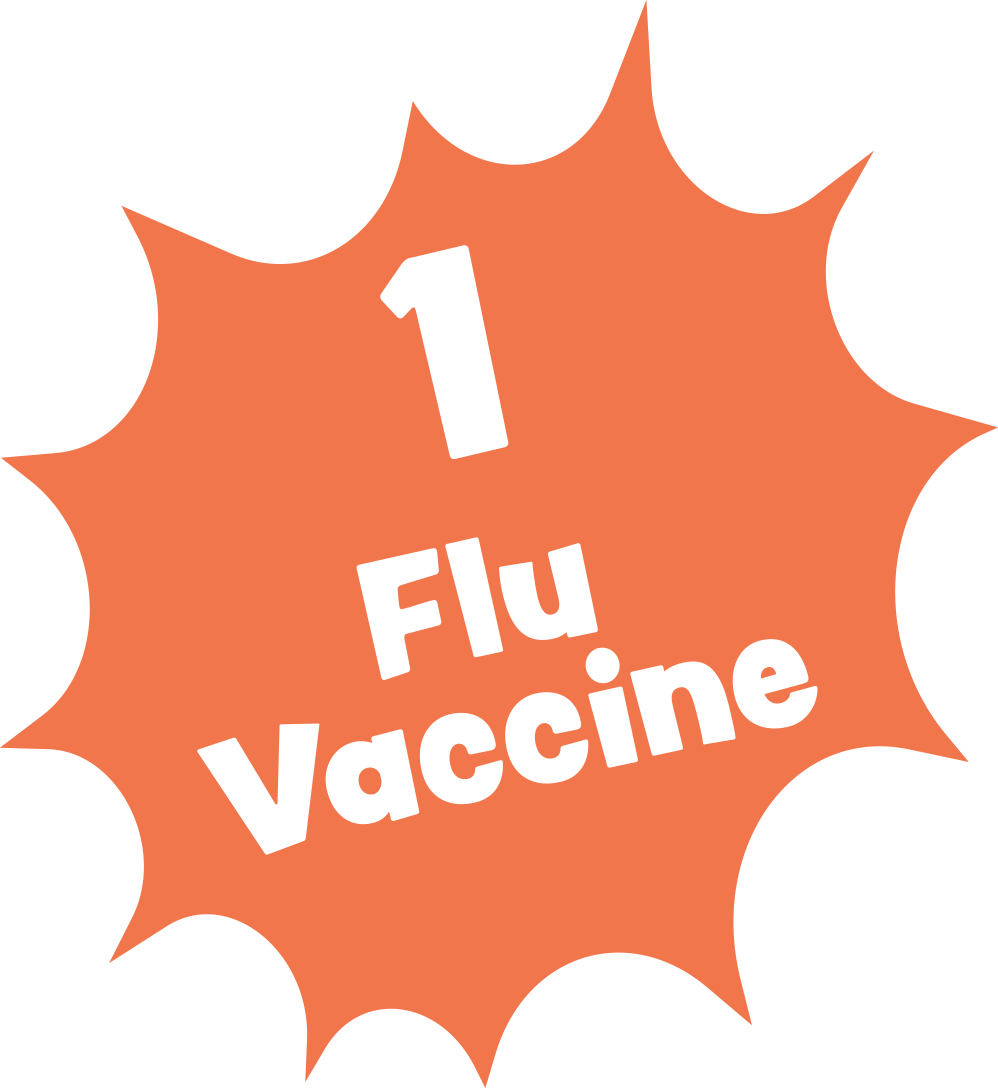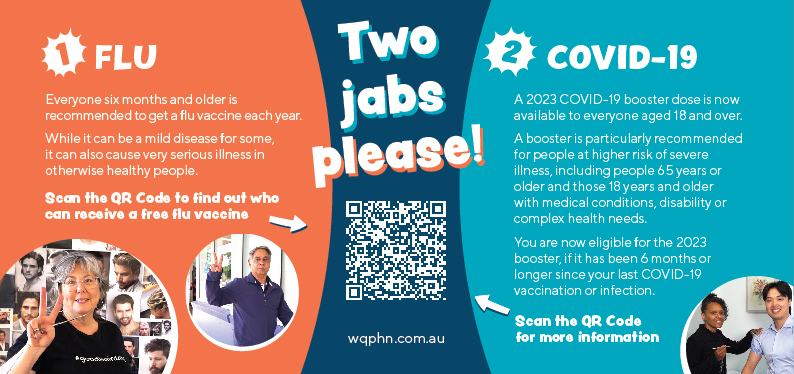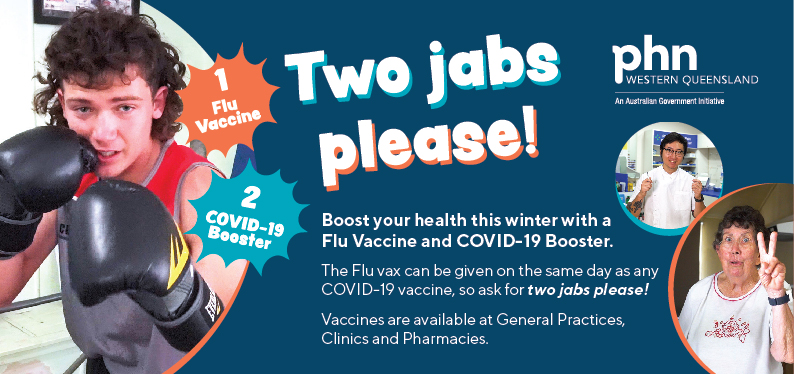Two Jabs Please - COVID-19 and Flu Vaccinations

COVID-19 and Flu Vaccination Information, Winter 2023


COVID-19 doses can be administered at the same time as the annual flu vaccination.
Co-administration of COVID-19 and influenza vaccines is clinically safe.
So go ahead and ask for Two Jabs Please.
COVID is very much still with us and getting your booster dose remains the best way to boost your immunity to protect yourself and your loved ones against the virus.
The 2023 booster dose is now available for everyone 18 years and over.
If it has been 6 months or longer since your last Covid jab or last Covid-19 infection you are now eligible.
This is irrespective of how many booster doses you have had in the past (booster doses are no longer numbered).
Now is a good time to recharge your immunity with a booster dose to prepare for winter.
Boosters are particularly recommended for people at higher risk of severe illness, including:
-
all adults aged 65 years and over; and
-
adults aged 18 years and over who have medical comorbidities, disability or complex health needs.
The following groups should consider a booster based on an individual risk benefit assessment with their immunisation provider:
-
all adults aged 18–64 years without risk factors for severe COVID-19; and
-
children and adolescents aged 5–17 years who have medical comorbidities that increase their risk of severe COVID-19, or disability with significant or complex health needs.
Booster doses are not currently recommended for children and adolescents under the age of 18 who do not have any risk factors for severe COVID-19, or for any children aged less than 5 years.
In 2023 new bivalent COVID-19 vaccines were made available that can provide better protection against the evolving Omicron variants. So please go ahead and book an appointment to get your next dose at your local pharmacy, GP or Aboriginal Health Clinic.
COVID-19 booster information - Department of Health and Aged Care


Who should receive the influenza vaccine
Everyone six months and older is recommended to get an influenza (flu) vaccine each year. The flu vaccine not only protects you, but it also can help protect those around you.
Influenza vaccination is especially important for some
The flu vaccine is strongly recommended and free under the National Immunisation Program for people most at risk of complications from influenza, including:
-
People 65 years and over
-
Pregnant women (at any stage during pregnancy)
-
Aboriginal and Torres Strait Islander people aged 6 months and over
-
Children 6 months to less than 5 years
-
People 6 months and over with certain medical conditions
In some circumstances, influenza vaccines may also be provided free to other people not listed above, such as a community wide outreach service.
When to get the influenza vaccine
Annual influenza vaccine should occur anytime from April onwards to be protected for the peak flu season, which is generally June to September. The highest level of protection occurs in the first 3 to 4 months following vaccination.
However, it is never too late to vaccinate since influenza can circulate in the community all year round.
Pregnant women should receive the vaccine at any stage during pregnancy.
About Influenza
Influenza is a common viral infection that affects people of all ages.
While it can be a mild disease for some, it can also cause very serious illness in otherwise healthy people. It can lead to hospitalisation and can cause death.
Vaccination is the safest way to protect yourself and others from influenza.
Where to get your influenza vaccine
You can book a vaccine appointment at a range of health services including:
-
local doctor/general practices
-
community health centres
-
Aboriginal health services
-
participating pharmacies.
Flu jabs and COVID-19 infection
Influenza vaccines can be given on the same day with a COVID-19 vaccine. There is no set timeframe to wait between having a COVID-19 infection and then having the influenza vaccine. Once you are feeling well and have no fever, you may receive an influenza vaccine.
Possible side effects of Flu vaccine
You may experience minor side effects following vaccination. Most reactions are mild and last no more than a couple of days and you will recover without any problems.
Common side effects of influenza vaccines include:
-
drowsiness or tiredness
-
muscle aches
-
pain, redness and swelling at injection site
-
occasionally an injection-site lump (may last many weeks - no treatment needed)
-
mild fever.
Flu Vaccination - Dept of Health and Aged Care
Two jabs please TV Ad:
Credits
The WQPHN website was developed and is maintained by Michael R.G. Hughes of Extremely Geeky.
Disclaimer
While the Australian Government Department of Health has contributed to the funding of this website, the information on this website does not necessarily reflect the views of the Australian Government and is not advice that is provided, or information that is endorsed, by the Australian Government. The Australian Government is not responsible in negligence or otherwise for any injury, loss or damage however arising from the use of or the reliance on the information provided on this website.

